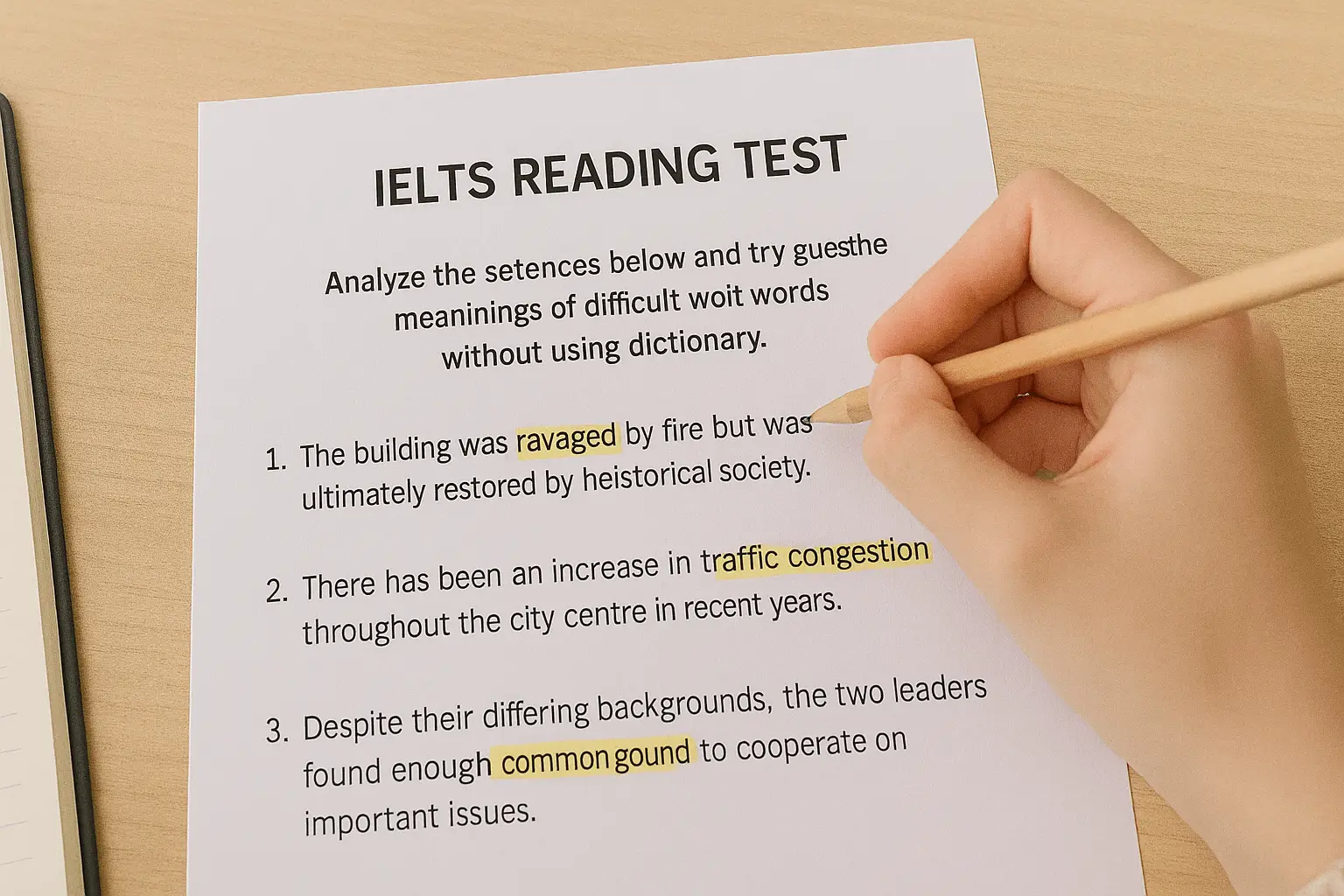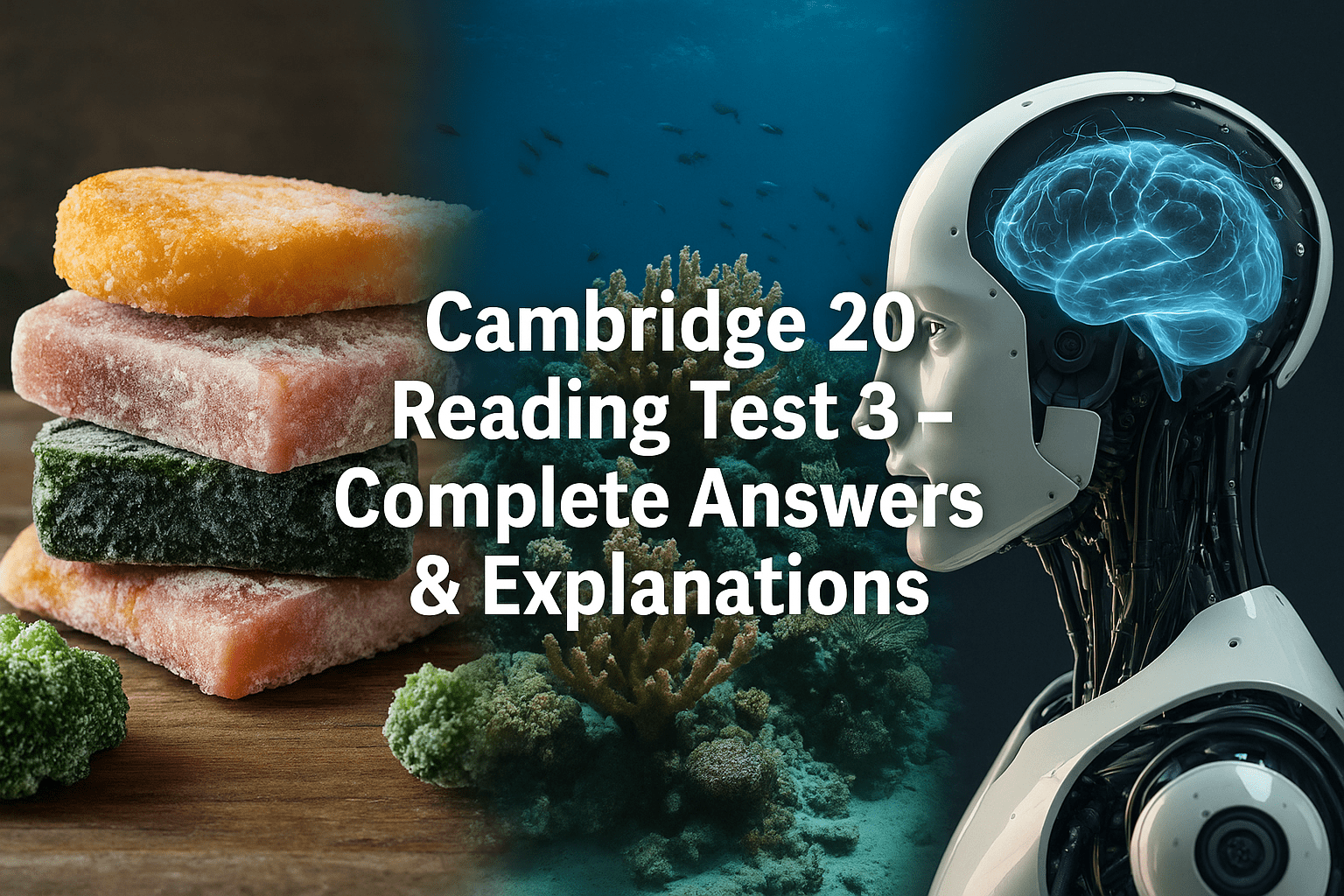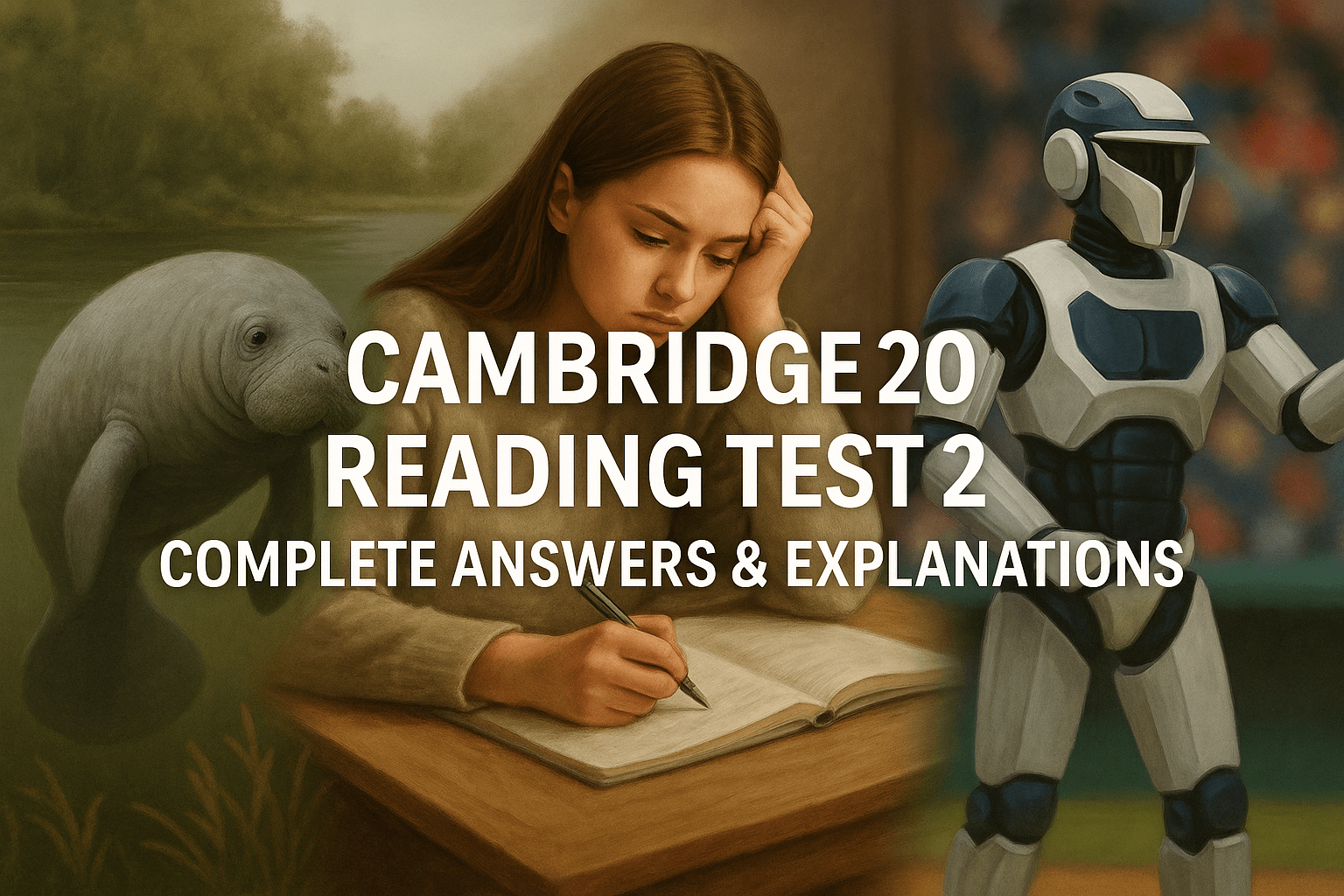- 🌟 Why Difficult Words Appear in IELTS Reading
- 🔹 Strategy for Handling Difficult Words in IELTS Reading
- 📖 Example of Understanding Difficult Words in Context
- 🏋️♂️ How to Practice Handling Difficult Words
- ❌ Common Mistakes to Avoid
- ✅ Quick Checklist for Dealing with Difficult Words
- ❓ FAQ: Difficult Words in IELTS Reading
- 🏆 Conclusion
When students prepare for IELTS Reading, one of the most common worries I hear is: “What if I don’t understand some words in the passage?” The good news is, you don’t need to understand every single word to achieve Band 7–9. Instead, you need strategies to handle difficult words in IELTS Reading without a dictionary.
In this blog, I’ll share practical techniques for understanding tough vocabulary, using context clues, and staying confident during the test.
🌟 Why Difficult Words Appear in IELTS Reading
IELTS Reading passages are designed to test your comprehension and strategy, not just your vocabulary. That’s why you’ll often see:
- Academic or subject-specific terms
- Complex descriptive words
- Rare synonyms you may not use daily
Many of these words are not essential to understand the main idea. The key is learning how to guess the meaning from context and sentence structure.
For official test details, visit IELTS.org or British Council IELTS.
🔹 Strategy for Handling Difficult Words in IELTS Reading
Here’s my step-by-step approach for staying calm and answering correctly even when you face unfamiliar vocabulary.
1. Focus on Context First
Read the entire sentence or surrounding sentences. Often, the meaning of the word is hinted at by:
- Examples or explanations nearby
- Contrasting words (e.g., however, but, unlike)
- Descriptions or cause-effect phrases
Example:
- Sentence: “The desert is an arid region, receiving less than 10 inches of rainfall annually.”
- Even if you don’t know arid, context tells you it means dry.
2. Look for Word Roots and Affixes
Many English words share prefixes, suffixes, or roots that reveal meaning.
- bio- = life → biology, biography
- anti- = against → antibiotic, antifreeze
- -logy = study of → geology, psychology
Example: “Photosynthesis” → photo (light) + synthesis (combine) → process plants use to combine elements using light.
3. Check for Synonyms and Paraphrasing
IELTS often paraphrases difficult words in nearby text.
- Question: “The scientist’s hypothesis was eventually validated.”
- Passage: “His idea was later proven to be correct.”
- Hypothesis = idea, validated = proven.
Learning to spot these will boost your accuracy.
4. Ignore Words That Don’t Affect the Answer
Not every difficult word is essential.
- If the surrounding text is clear and the unknown word does not affect the question, move on confidently.
🎯 Pro Tip: Panicking over unknown words wastes time. Stay focused on meaning and keywords instead.
For a full reading strategy, check our IELTS Reading Skills for Band 7–9.
📖 Example of Understanding Difficult Words in Context
Passage: “The medication was efficacious in treating the infection, significantly improving patient outcomes.”
- Unknown word: efficacious
- Context: Medicine → treating infection → improving patient outcomes
- Meaning from context: effective / successful
Even without knowing the exact dictionary meaning, you can answer related questions correctly.
🏋️♂️ How to Practice Handling Difficult Words
1. Context Clue Drills (10 min/day)
Take any English article. Highlight unknown words and write their meaning based on context before checking a dictionary.
2. Synonym Building
Create a vocabulary notebook with synonyms for common IELTS topics like environment, technology, or education.
3. Timed IELTS Practice
Do not stop or use a dictionary. Train your brain to stay calm and guess from context.
4. Review with Explanation
After practice, check meanings and confirm if your guesses were correct.
For more official practice, visit IDP IELTS.
❌ Common Mistakes to Avoid
- Panicking over every unknown word – Focus on meaning, not perfection
- Stopping to translate – No time for that in IELTS
- Ignoring context clues – Surrounding words often explain the meaning
- Skipping regular vocabulary practice – Consistency is key to improvement
✅ Quick Checklist for Dealing with Difficult Words
Before your next test, check if you can:
- Guess meaning from context and sentence structure
- Recognize prefixes and suffixes to aid understanding
- Ignore unimportant words without losing comprehension
- Stay confident without using a dictionary
If yes, you’re ready to handle challenging IELTS passages without fear.
❓ FAQ: Difficult Words in IELTS Reading
Q1: Do I need to know every word in the passage to score Band 8 or 9?
No, focus on overall meaning and keywords.
Q2: Should I bring a dictionary to the test?
No, dictionaries are not allowed in IELTS Reading.
Q3: How can I quickly understand unfamiliar words?
Use context clues, roots, and affixes to guess meaning.
Q4: Which question types are most affected by unknown words?
True/False/Not Given and Matching Information, where context is key.
Q5: How can I improve my vocabulary for IELTS Reading?
Read widely, keep a synonym notebook, and practice daily with timed passages.
🏆 Conclusion
Difficult words in IELTS Reading don’t have to stop you from scoring high. By using context clues, sentence structure, and smart guessing techniques, you can understand passages without a dictionary and answer accurately.
Practice this approach daily, stay calm, and combine it with skimming, scanning, and paraphrasing for Band 7–9 success. Now, pick a passage and test yourself—ignore the fear of tough words, and focus on meaning!





